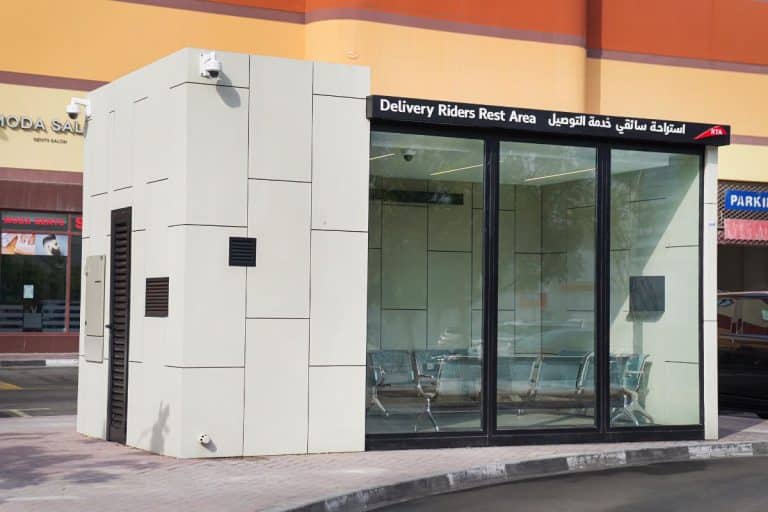Dubai’s Roads and Transport Authority (RTA) has completed the construction of 20 air-conditioned rest areas for delivery riders across the emirate, with plans to build a total of 40.
The initiative aims to improve road safety and reduce incidents involving delivery drivers.
“RTA is committed to providing a safe and comfortable environment for delivery drivers. This initiative aims to enhance traffic safety for all road users and achieve the targeted indicators of the Dubai Traffic Safety Strategy with its ‘Zero Fatalities’ vision to rank Dubai the best in the world in terms of traffic safety,” Mattar Al Tayer, Director-General, Chairman of the Board of Executive Directors of the Roads and Transport Authority said.
RTA initiative targets ‘Zero Fatalities’ in Dubai’s delivery sector
“The construction of rest areas aligns with the significant growth in the delivery sector in recent years, addressing the public’s increasing demand for goods. As of the end of last June, the number of companies providing delivery services by motorcycles in Dubai reached 2,535 with a total of 40,088 delivery bikes in operation,” he added.
The rest areas are located in high-demand areas for delivery services, such as Hessa Street, Al Barsha Heights, Al Barsha, Al Karama, Riggat Al Buteen, Umm Suqeim (Jumeirah 3), Jumeirah (Al Wasl Road), The Greens, Dubai World Trade Centre, Al Rashdiya, Al Satwa, Nad Al Hamar, Al Nahda, Oud Metha, Arabian Ranches, International City, Business Bay, Dubai Marina, Al Jaddaf, Mirdif, Last Exit Al Khawaneej, Dubai Motor City, and Al Garhoud.
Each facility can accommodate up to 10 people and features air conditioning, snack vending machines, water dispensers, and mobile phone charging stations, Al Tayer said.
The project responds to the growth in Dubai’s delivery sector, which now boasts 2,535 companies operating 40,088 delivery bikes as of June 2023.
In addition to the rest areas, RTA has launched the Delivery Service Excellence Award to encourage competition among companies and drivers.
The award aims to improve traffic safety, promote adherence to regulations, and enhance service quality.





